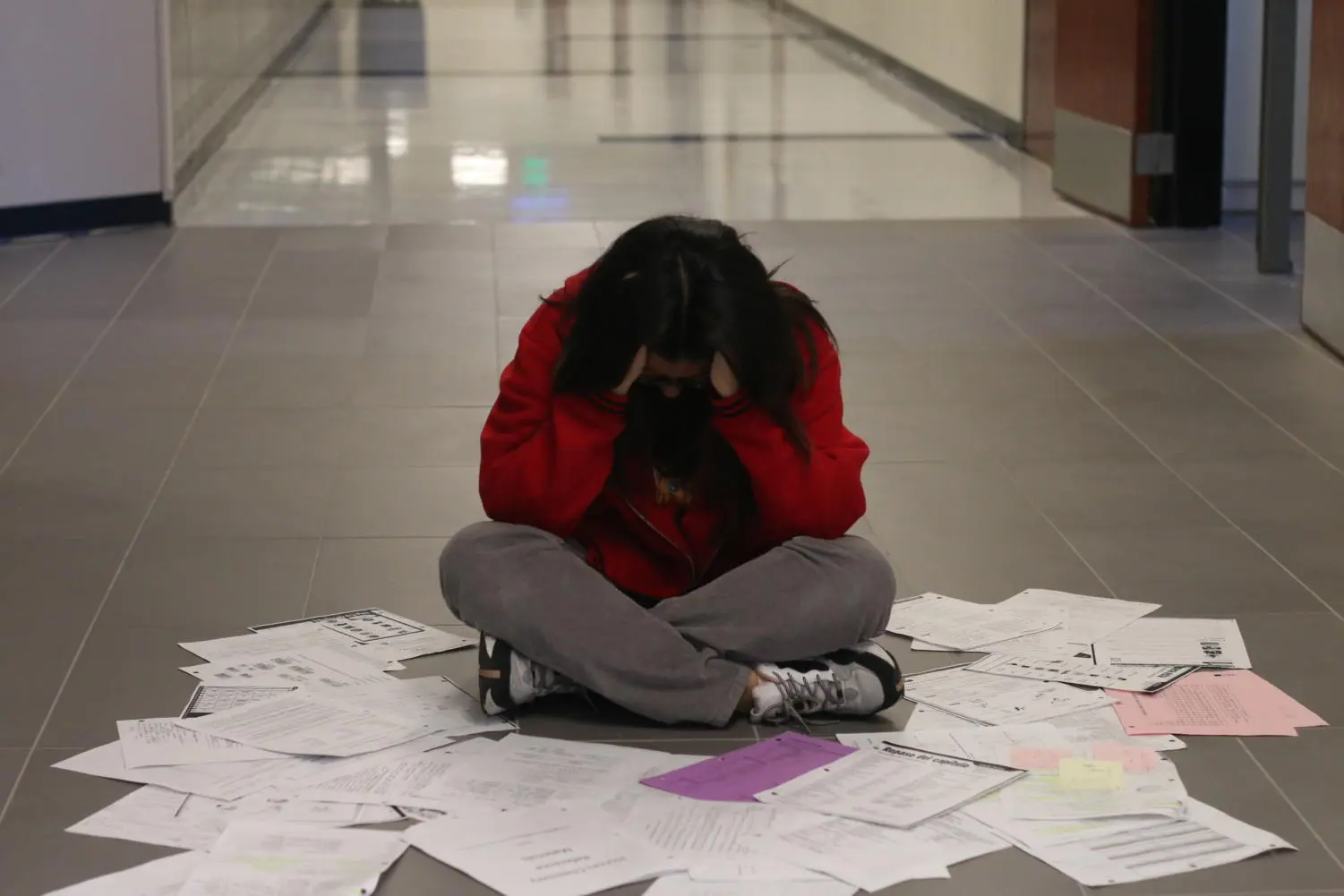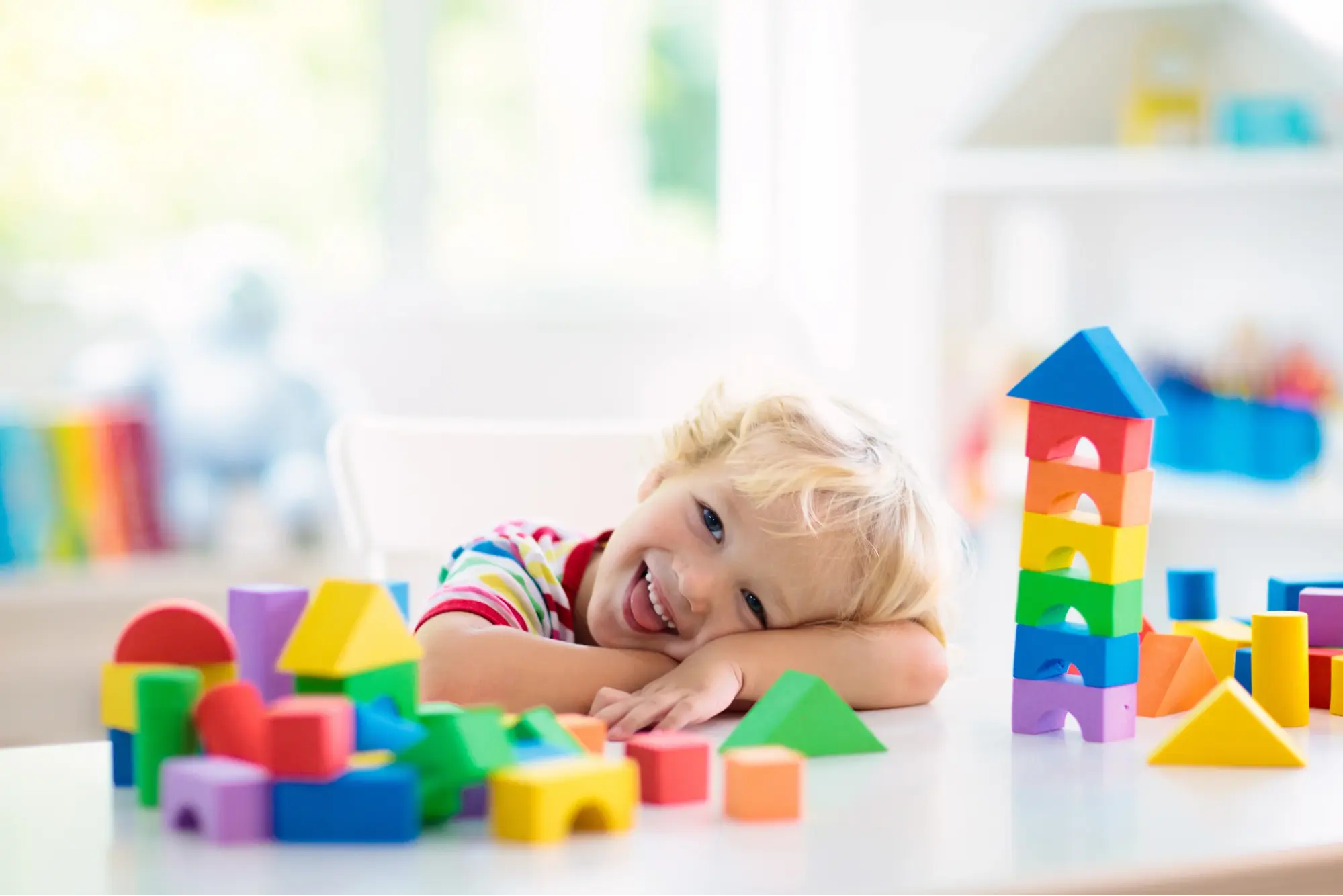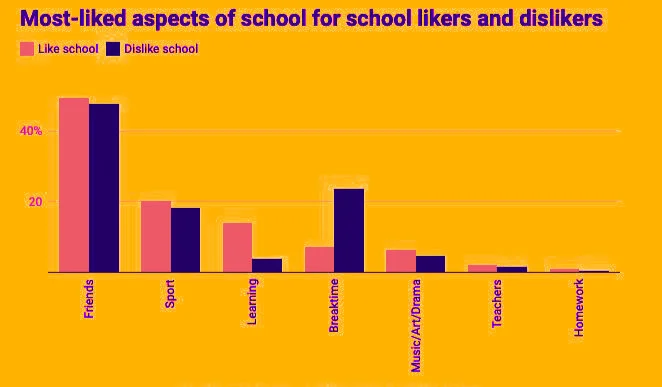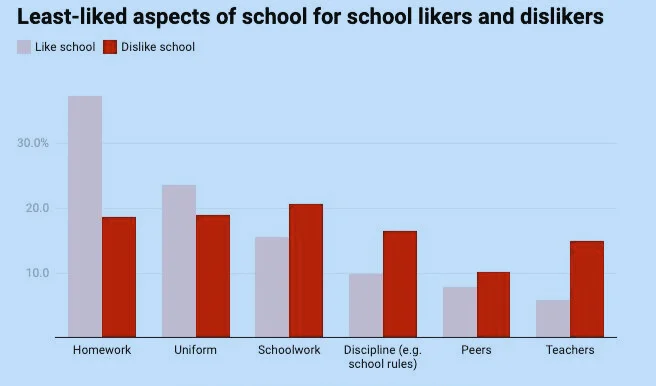
Update: This article was last updated on 16th January 2026 to reflect the accuracy and up-to-date information on the page.
Why do kids hate school? It’s a question that perplexes parents, educators, and researchers alike.
School is an essential part of a child’s life. However, children are often less fond of going to school. Some kids often dread the experience and get anxious when thinking about going to school. To further understand this phenomenon, the Yale Center for Emotional Intelligence and the Yale Child Study Center conducted a study among 21,678 high school students. Almost 75% of the students shared negative opinions and feelings about their schools.
Alarming figures motivate educators and parents to investigate the reasons for academic dislikes and how to reduce them potentially. This blog post will go into various common reasons why children may retain negative feelings about school and provide advice on transforming them into positive ones.
Recommended Reading: 5 WAYS TO MAKE HOMEWORK FUN FOR YOUR CHILD
4 Reasons Why Kids hate school
1. Lack of Interest
There are numerous explanations why your kids, especially teenagers, may have an intense resistance to attending school. But one of the most common reasons is their inability to develop a taste and interest in the available academic program.
As each child boasts about their unique interests and learning styles, it becomes increasingly clear that if they fail to find the subject matter exciting, they naturally develop a sense of boredom. Going to school every day brings monotony to their lives.
2. Bullying
Schools can sometimes actually get quite unsafe! It is an awful truth that certain kids, to demonstrate authority and superiority, resort to bullying their defenseless and submissive classmates.
According to a report, one in five students aged 12 to 18 has been bullied in school in the US. Tragically, this has led to 160,000 teens skipping school because of bullying.
These acts not only cause physical and emotional injury to the victims but also instill an underlying sense of fear in their very being, creating a deep-rooted and widespread dislike for school environments.
This, in turn, creates negative connections that could discourage your kids from attending school in the first place.
3. Homework overload and exam anxiety
Academic stress and the beginning of exam-induced anxiety are widely considered vital causes of school hatred. The agonizing weight of homework assignments and pre-exam preparations may become too much for some students, especially if they believe they need more assistance or direction.
This constant pressure to excel and survive the never-ending competition can cause anxiety and an overwhelming feeling of unworthiness, continuing a cycle of hostility toward schooling.
4. Difficulties With Learning
The dislike for school is not just due to one source. It can also be linked to the complicated nature of learning. When kids face difficulties in the learning process, they might experience a range of adverse feelings, which include frustration and embarrassment.
This could contribute to a loss of self-confidence and an unfavorable attitude toward their schoolwork, possibly leading to a hatred of the concept of school altogether.
How to Make Your Children Enjoy School
1. Find out what they are interested in?
To instill a love for school in children, it is essential to find their specific interests, which may be a preference for art, music, science, athletics, or various other activities. Teachers may create a sense of engagement and relevance in the learning process by correctly incorporating apt activities, events, and programs into teaching practices.
By embracing this approach, teachers or parents may tap into a child’s natural curiosity and creative thinking, developing a lifelong love of learning.
2. Address on Bullying
Bullying can scar your kids’ mental health and well-being forever. As a result, teachers and school authorities must play an active role to reduce and eliminate such detrimental acts of bullying. They must build a favorable and friendly environment for every kid.
This could involve the enactment of anti-bullying rules as well as the provision of counseling services. As a parent, you, too, should be vigilant enough to understand if your kid is facing such bullying issues at school. Do not hesitate to take strict actions and inform the authority the moment you come to know about these bullies.
Recommended Reading: Making the Most of Grade 9 – 10 Tips
3. Offer Guidance
Parents, as well as teachers, can help kids conquer the challenges of homework and exam preparation by giving them the resources and skills they need to succeed, such as study guides, tutoring services, and time techniques for time management. Additionally, building an atmosphere that is positive and encouraging can help reduce exam anxiety and encourage students to excel.
4. Personal teaching
Individualized schooling is essential, especially for kids who have difficulty with learning. Teachers might provide additional assistance, such as one-on-one tutoring or small group training, to help kids understand and remember different concepts. At the same time, parents should collaborate with their kids at home, providing extra support and guidance while assisting them in reaching their full potential.
This is a graphical representation of data provided on the most liked aspects of school for school likers and dislikes.
This is a graphical representation of data provided on the least liked aspects of school for school likers and dislikers.
Wrapping it Up!
Every child is different, so their problems are unique as well. If your child dislikes school, take hints from this article, initiate a meaningful conversation with them, collaborate with the school authority, and nip it in the bud.
Moonpreneur is dedicated to transforming conventional education, preparing the next generation with comprehensive learning experiences. Our Innovator Program equips students with vital skills in AI/ML, Robotics, Coding, Game Development, and App Development, fostering entrepreneurship through hands-on learning. This initiative aims to cultivate the workforce of tomorrow by integrating innovative technologies and practical skills in school curriculums.
Register for a 60-minute free workshop today!


































Why in the first place kids dislike school?
Many factors can contribute to a child disliking school, such as:
Feeling overwhelmed: Struggling to keep up with the workload or feeling pressure to perform well.Social difficulties: Having trouble making friends or feeling isolated in the classroom.Structural issues: Disliking strict routines, long hours, or limited autonomy in the classroom.External factors: Experiencing stress, anxiety, or personal challenges outside of school impacting their mood and engagement.